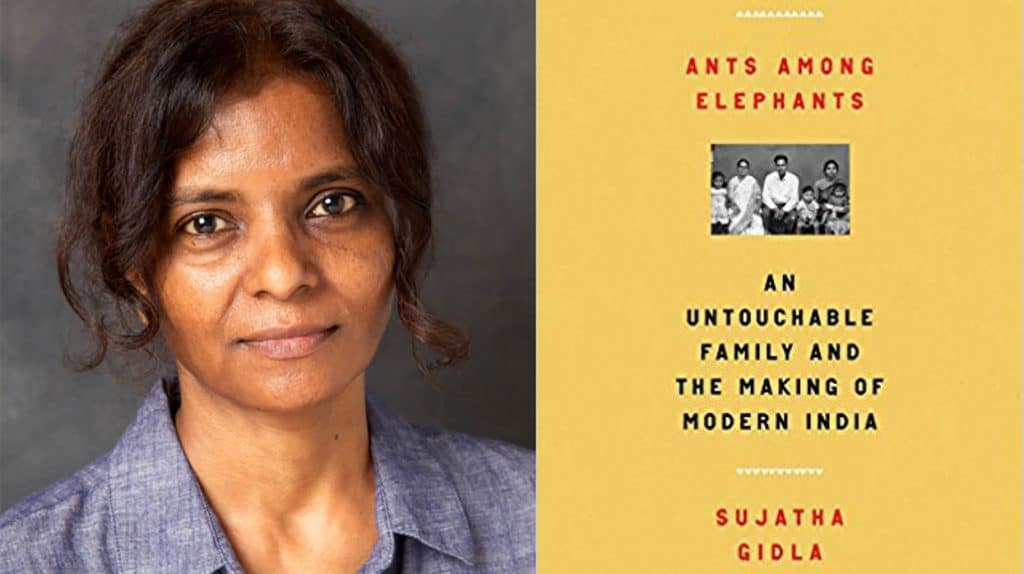Ants Among Elephants, a book written by New York City Subway conductor Sujatha Gidla, is making the world sit up and notice the experiences of Dalits in India. Gidla’s book narrates her life in a lower-caste family in India and the plight of the 300 million Dalits who were once untouchable in the country.
‘My stories were not stories in India. They were just life’
Gidla comes from a Dalit community of Kazipet, a small town in Telangana. In her book, she talks about how she and other Dalits are humiliated in India by members of other castes, something that she realised only when she moved to the US at the age of 26. After going to America, Gidla realised that the ‘terrible reality of caste’ does not determine anyone’s identity in other countries.
The story reflects her personal struggles and the freedom that she found in America.
She writes how, for Dalits in India, caste is a lifelong trap: “Your life is your caste, your caste is your life.”
With Ants Among Elephants, Gidla joins many Dalit women in India who are telling their stories in a system that oppresses them.
She recalls some moments in her life that reminded her that she was an ‘outcast’, like the time when a junior school classmate refused to touch the sweet she offered. “Not allowed to come near sources of drinking water used by other castes. Not allowed to eat sitting next to a caste Hindu or to use the same utensils. There are thousands of other such restrictions and indignities that vary from place to place. Every day in an Indian newspaper you can read of an untouchable beaten or killed for wearing sandals, for riding a bicycle,” Gidla writes.
“They are not stories of shame, but of grace,” Michael D Langan, culture critic for NBC-2.com, says, adding that Gidla breaks away her “indomitable soul” to tell her family stories.
Sujatha grew up in a Christian family thinking that they were treated poorly by others because they were Christians and not Hindu. As time passed, Sujatha watched movies and went to college, which raised different questions for her. She recalls watching a movie about a Hindu boy being rejected by a Christian girl’s family, since she was unaware that rich Christians also exist. Even when she went to college, she noticed many Christian girls who were richer and more privileged than others like her were. That is when she got familiar with the idea of ‘brahmin Christians’, and therefore, caste.
“When people in the United States ask me what it means to be an untouchable, I explain that caste is like racism against African Americans here. But then they ask, ‘How does anyone know what your caste is?’ They know caste isn’t visible, like skin color,” she says, according to Boston Review.
Discrimination in America
“For me, what was appealing was the idea of America, especially Bob Dylan’s music, the culture of protest, and the draw of joining a society where debates on rights and equality could be articulated,” she told BBC. In America, she says, she faced racism. And caste was there too. She says she found “petty caste discrimination” among the Indian community in the US.
For Gidla, life was better since she was educated, and she didn’t really feel like a typical untouchable. Education gives you a choice, she believes.
First Indian Woman Subway Worker in New York
Gidla worked in a bank but was laid off in 2009. She then took up a job at the New York Subway, which is known as one of the busiest and massive transit systems in the world.
She was the first Indian woman to be employed as a conductor, and is identified as a “Hindu conductor”, she says.
